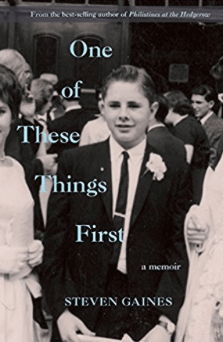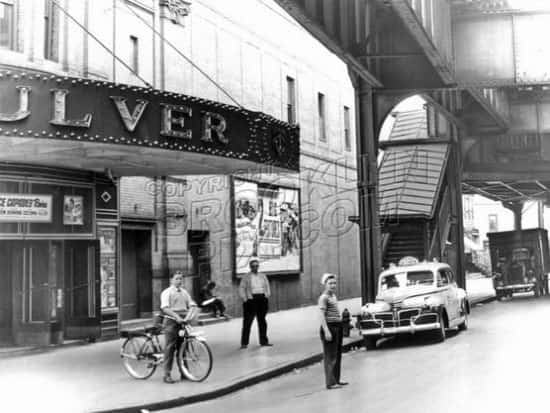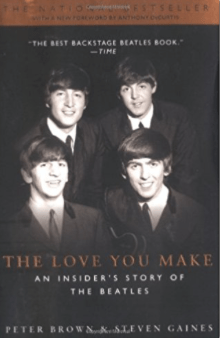Steven Gaines is the bestselling author of Philistines at the Hedgerow: Passion and Property in the Hamptons, The Love You Make: An Insider’s Story of The Beatles, and many others. As a journalist Gaines has written for many publications, most notably Vanity Fair, New York Times and New York Magazine where he served as contributing editor for 12 years. A native New Yorker and graduate of NYU Film School, Gaines’s background in film is what helps him to be such a graphic storyteller to where readers are witnesses to the movie in his mind he then so eloquently puts on paper.
 In his memoir, One Of These Things First, Gaines looks back at childhood in 1960s Brooklyn with a humor and candor uncharacteristic of most memoirs. Growing up in an apartment above his grandmother’s bra and girdle store, Gaines takes readers back to that particular time in his life and gives us a first-hand account of what his Borough Park neighborhood looked like and felt like at that time. Gaines does not shy away from many of the difficulties he faced, including therapy to “cure” his homosexuality to a stint at the exclusive Payne-Whitney hospital to the zany antics of the colorful cast of characters that were his family, neighbors and friends. Steven Gaines tells a riveting and often funny story of an uncertain youth in such a way we can all relate to and grow from.
In his memoir, One Of These Things First, Gaines looks back at childhood in 1960s Brooklyn with a humor and candor uncharacteristic of most memoirs. Growing up in an apartment above his grandmother’s bra and girdle store, Gaines takes readers back to that particular time in his life and gives us a first-hand account of what his Borough Park neighborhood looked like and felt like at that time. Gaines does not shy away from many of the difficulties he faced, including therapy to “cure” his homosexuality to a stint at the exclusive Payne-Whitney hospital to the zany antics of the colorful cast of characters that were his family, neighbors and friends. Steven Gaines tells a riveting and often funny story of an uncertain youth in such a way we can all relate to and grow from.
Recently, BookTrib talked with Steven Gaines about his memoir, growing up in Borrough Park, writing about The Beatles and what’s next. Gaines is just as funny in conversation as he is in telling his story, but he IS a storyteller and that is what we found most fascinating about him.
BookTrib: This book is about your growing up in Borough Park, Brooklyn, what was that like?
SG: I grew up above the bra and girdle shop my grandmother owned. Our street was a commercial street. The train station was across the street, the movie theater I spent hours at was there. I knew every square of the neighborhood. Borough Park was a warm loving neighborhood. It was one-third Jewish, one-third Irish, one-third Italian. It was a lovely place to grow up. It wasn’t as sophisticated. At times Brooklyn and Borough Park seemed very separate.

BookTrib: Do you think that is something younger generations are missing today? That connection to the neighborhood, where you knew everyone and people looked out for one another?
SG: It was a much simpler time. That lovely sweeter time, I think we paid a price for it. I think I was part of the price. It was a wonderful place and time to grow up, but when I realized I had these feelings for other boys, it was tough being in that neighborhood.
BookTrib: So, did you learn you had those feelings for other boys at 13?
SG: Much earlier. Like everyone I got the feelings when puberty hit, but I didn’t know how to handle it. As a result, I developed OCD. I had all the symptoms and began with different rituals. Like I would touch things and not know why I had to touch things and other people, my family didn’t understand it. I didn’t know what to do or to do about it. My parents took me to different doctors to try and “cure” me. Then one day, I was watching television and learned Marilyn Monroe was at Payne-Whitney [hospital] and I decided I wanted to go there because if it was good enough for Marilyn Monroe…
I went, it was private. It was like a chrysalis. My psychoanalyst saw how tortured I was; he saw that I didn’t really want this and that he could cure me. I spent eleven years with Wayne Meyers and it didn’t work. But he was a great man, I have nothing bad to say about him. Bruce Springsteen said the same about his psychoanalyst, that despite not helping him cope with his problems, his analyst was great. It turns out Bruce Springsteen and I shared the same psychoanalyst.
BookTrib: Do you think the same can be said about Conversion Therapy? That it doesn’t work?
SG: There’s not a lot left of it now, but Conversion Therapy doesn’t work. People want parents to have the ability to do whatever they want and make these decisions, but they aren’t always good. With my parents, it wasn’t Conversion Therapy, they wanted a cure; but in the end, they wanted me to be happy.
BookTrib: One Of These Things First is a coming of age story told with humor – why did you make that choice?
SG: It took me a long time to write. It happens that 55 years ago I tried to write it. I tried many different ways over the years. The last version was double the length and included experiences from my 20s, which I am saving for another book. Earlier drafts were too much of a pity party. Humor makes it more relatable.
BookTrib: It seems like an amazing journey, not just a traditional memoir, but one where the people in your life were like characters in a movie.
SG: As you read the book there were many different references to movies. Growing up, I didn’t watch TV as much as I watched movies. I could go to the neighborhood movie theater and watch all the movies I wanted to for free, and that’s what I did. I taught myself how to write because I was cinematic, I went to film school, so it does read like a movie. It’s funny. It is very, very funny. It sounds tragic, but it is funny.
The reason why it has gotten such great reviews is that I had a sense of humor about this. You have to keep your sense of humor, people don’t want to read negative things. Nobody likes to read a pity party. To sell a biography you have to be very sick, dying, slept with a member of the Partridge Family, had a cat die, overdosed, or have a sense of humor about yourself. Otherwise people won’t want to read it.
 BookTrib: This is your first memoir, but not your first book. You’ve written some music biographies, too, including one about The Beatles, right?
BookTrib: This is your first memoir, but not your first book. You’ve written some music biographies, too, including one about The Beatles, right?
 SG: My first biography was for New York Daily News and it was on Alice Cooper. That was the first and it was enormously successful. Later, Peter Brown, who helped manage The Beatles and is the only living person mentioned in a Beatles song, called and asked if I would be interested in writing this book. He said he could get me access for interviews to do this. So I moved to London and met everyone, talked to all the members, Yoko Ono, I talked to everyone I could; it took about 3 years. That book was a really big hit. After that I wrote about the Beach Boys which didn’t take as long to write, I finished that book in two months.
SG: My first biography was for New York Daily News and it was on Alice Cooper. That was the first and it was enormously successful. Later, Peter Brown, who helped manage The Beatles and is the only living person mentioned in a Beatles song, called and asked if I would be interested in writing this book. He said he could get me access for interviews to do this. So I moved to London and met everyone, talked to all the members, Yoko Ono, I talked to everyone I could; it took about 3 years. That book was a really big hit. After that I wrote about the Beach Boys which didn’t take as long to write, I finished that book in two months.
BookTrib: We always ask, what’s next? What’s the next book?
SG: Now, I am working on the part about my 20s. Part of “the cure” was to sleep with women. I had a lot of affairs with many different women. I didn’t connect and when I was 26 years old, I stopped that altogether and I came out. That was a big year for me. I had my first big book, Marjoe at 26. I helped people to discover Marjoe and a whole world opened up to me. A documentary about Marjoe won an Academy Award the same year [1973] the book came out and they both fueled each other. The book was very popular and I was in the limelight. So the next is about that time in my life.
BookTrib: Final Thoughts?
SG: Everybody should write an autobiography. There’s a commonality among people. We all have parents and family and experiences that are unique, but very similar in some ways. Everyone should write one.




